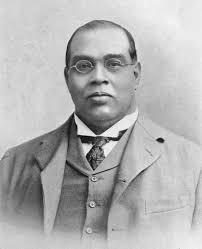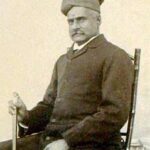Romesh Chunder Dutt: 7 Groundbreaking Contributions That Shaped India’s History
Romesh Chunder Dutt was one of the most influential figures in 19th-century India, known for his work as an economist, historian, and social reformer. His scholarly approach to India’s economic history, combined with his activism for social reform, has left a lasting legacy. Dutt’s works contributed significantly to India’s intellectual and political life during British colonial rule and played an important role in India’s awakening to the need for change.
Early Life and Education
Romesh Chunder Dutt was born on 4th May 1848 in the village of Barrackpore, West Bengal, into a well-educated Bengali family. Dutt was an intelligent and curious child, interested in literature and the arts. His family’s support allowed him to pursue his education at some of the best institutions of his time. He completed his schooling at the well-known Presidency College in Kolkata, where he was exposed to the progressive ideas of the time.
Later, Dutt studied law and was called to the bar, but his true passion lay in literature, history, and economics. His educational background laid the foundation for his future endeavors as a scholar and reformer.
Contributions to History and Economics
- Historical Contributions: Romesh Chunder Dutt’s most significant work was his contribution to the documentation of India’s colonial history. His detailed analysis of British rule in India provided an essential critique of the economic exploitation that the British Empire inflicted on India. Dutt’s “The Economic History of British Rule in India” (1902) is a seminal work that highlighted how the British manipulated India’s resources, leading to economic decline and poverty. This book remains one of the most important historical texts for understanding the impact of British colonialism.
- Social Reformer: Dutt was a vocal advocate for social reforms in India, particularly in relation to the treatment of women, caste discrimination, and the need for education for all sections of society. His progressive ideas were ahead of his time, and he championed the cause of social justice, urging for more rights and opportunities for the marginalized in Indian society.
- Economic Reforms and Critique of British Policy: As an economist, Dutt used his position to critique British policies that negatively impacted India’s economy. His work in this field challenged the British narrative of India’s prosperity under colonial rule. By examining the causes of poverty and unemployment in India, he advocated for policies that would improve the livelihoods of the Indian people, focusing on the need for land reforms and industrial development. His work laid the groundwork for future economic reformers in India.
- Advocacy for Indian Self-Rule: Dutt believed in India’s potential to govern itself and strongly advocated for Indian self-rule (Swaraj). His nationalist beliefs were embedded in his writings and social activism, where he emphasized the importance of reclaiming India’s sovereignty and breaking free from the economic and political stranglehold of British colonialism.
- Literary Works: Apart from his historical and economic writings, Romesh Chunder Dutt was also a poet and a writer of fiction. He translated several works of Indian literature into English, making them accessible to a wider audience. His literary works, including “The Journal of Indian History”, reflect his deep love for India’s culture, traditions, and history.
- Public Service and Administration: Romesh Chunder Dutt also served in various administrative roles within the British colonial system. His work in government, however, did not hinder his nationalist beliefs. He used his position to advocate for policies that would benefit the Indian population, particularly in the areas of education, infrastructure, and public welfare. His ability to navigate the complexities of colonial rule allowed him to influence policy while remaining committed to India’s progress.
- Role in Indian National Congress: Dutt’s contributions extended to his role in the Indian National Congress (INC), where he was actively involved in the discussions about India’s political future. His support for the Congress’s demands for greater Indian representation in the British government, along with his emphasis on economic self-sufficiency, placed him among the leading intellectuals of his time who contributed to India’s struggle for independence.
Daily Life and Impact
Romesh Chunder Dutt led a life deeply rooted in intellectual pursuits, social reform, and activism. His daily routine consisted of reading, writing, and attending social reform meetings. Despite his busy professional life, he remained a devoted family man and was committed to the advancement of education and culture in India.
Dutt was also an active participant in social causes, frequently writing articles, delivering speeches, and engaging with other like-minded reformers. His works were a catalyst for change, inspiring future generations of economists, historians, and social reformers in India.
Significant Facts About Romesh Chunder Dutt
- Economic Critic of British Colonialism: Dutt’s analysis of British economic policies in India remains one of the most important critiques of colonial rule.
- Author of The Economic History of British Rule in India: This work is widely regarded as a seminal contribution to the study of colonial economics in India.
- Advocate for Indian Self-Rule (Swaraj): Dutt was a staunch supporter of Indian nationalism and advocated for India’s self-governance.
- Social Reformer: His advocacy for social reforms, particularly in education and gender equality, was ahead of its time.
- Literary Contributions: Dutt was not only a historian and economist but also a poet and translator, promoting Indian culture and literature.
- Prominent Member of the Indian National Congress: Dutt played an active role in the Indian National Congress and contributed to the organization’s goals of political representation and self-rule.
- Political Activist: Dutt’s writings and speeches became powerful tools in the Indian independence movement, inspiring people to challenge British rule.
FAQs
Q: What was Romesh Chunder Dutt’s most important contribution?
A: Romesh Chunder Dutt’s most important contribution was his work The Economic History of British Rule in India, which provided a detailed analysis of the economic exploitation of India under British colonial rule.
Q: What social causes did Romesh Chunder Dutt support?
A: Dutt supported several social causes, including women’s rights, education for all sections of society, and the removal of caste discrimination. He was a champion of social justice and reform.
Q: How did Romesh Chunder Dutt contribute to the Indian independence movement?
A: Dutt’s writings and activism strongly supported the cause of Indian self-rule (Swaraj). He was a key intellectual figure in the Indian National Congress and a vocal critic of British colonial policies.
Q: Was Romesh Chunder Dutt involved in literature?
A: Yes, in addition to his historical and economic writings, Dutt was a poet and a translator. He contributed to Indian literature by making classical works accessible to a wider audience.
Q: What role did Romesh Chunder Dutt play in the Indian National Congress?
A: Romesh Chunder Dutt was an active member of the Indian National Congress and contributed to its efforts to gain greater representation for Indians in the British government.
Conclusion: Romesh Chunder Dutt’s Legacy
Romesh Chunder Dutt was an intellectual and social reformer who made groundbreaking contributions to India’s economic history and social progress. His works exposed the deep flaws in British colonialism, critiqued the economic policies that impoverished India, and laid the foundation for the country’s economic and social awakening. His legacy continues to inspire generations of scholars, activists, and leaders who seek to understand and address the challenges India faced during colonial rule. Today, his writings remain a vital resource for anyone interested in understanding India’s colonial history and its path to self-rule.










